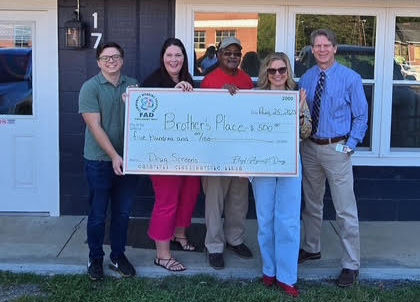FAD $2,000 Gift Supports Housing for Drug Court Participants
- fadsite
- Oct 20, 2025
- 2 min read

In a show of strong community solidarity, the local nonprofit Floyd Against Drugs recently presented a generous donation of $2,000 to support the housing component of the Rome‑Floyd Drug Court program.
The funding will be used to help participants in the Drug Court fill a crucial need: stable, supervised housing that supports their rehabilitation and recovery journey. According to Floyd Against Drugs’ mission, the organization works to reduce the use of drugs, tobacco and underage drinking across Rome and Floyd County, offering both education and local prevention initiatives.
This gift comes at an important time. Drug Court programs depend not just on case-management and legal oversight, but also on the practical supports that help participants rebuild lives: safe housing, employment, treatment and community reintegration. By directing donations toward the housing piece, Floyd Against Drugs is helping close a gap that often feels less visible—but is absolutely critical.
As one local leader put it: when someone in recovery can count on a secure place to live, the odds of them staying the course and continuing forward go up immensely. This donation ensures that even after court hearings and treatment sessions, there is a place to call home — one that supports the person next, rather than giving up.
Why we should all care
Housing is a foundation. Recovery doesn’t happen in a vacuum. A roof over one’s head, structure and community wrap-around make a huge difference.
Local investment pays off. When nonprofits like Floyd Against Drugs step up, they show that it takes more than policy—it takes people and place to build lasting change.
It’s not just about “getting clean.” It’s about restoring lives, families and neighborhoods. This contribution supports that larger vision.
What this looks like in practice
Imagine a participant in Drug Court finishing the intake process, committed to the program and ready to turn things around. With the housing support in place, they’re not worrying about “where do I sleep tonight?” but instead can focus on treatment, job-search, rebuilding relationships, and being an active citizen. That shift—from crisis to stability—makes all the difference.















Comments